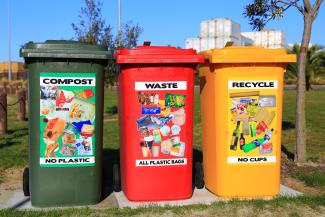Food Waste Prevention Resource Guide Series: Date Labels

The Resource Guide Series highlights five proven food waste prevention strategies: packaging design and use, date labels, meal prepping and kits, storage and freezing, and plate and portion size. Each Resource Guide covers one of the five topics, includes key tips as well as a list of helpful resources, and is organized into three charts each of which is tailored to a different audience—classrooms, households, and workplaces.






